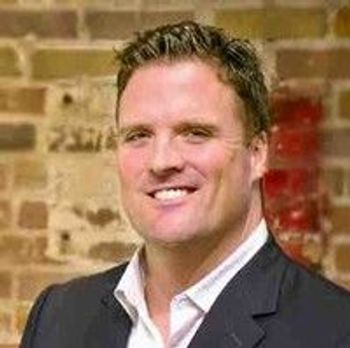
Special Report: 60 years of Medicare
On Medicare's 60th anniversary, President Harry Truman's eldest grandson joins the director of the Truman Library in Independence, Missouri, to reflect on Truman's vision, LBJ's 1965 signing and the program's lasting impact on U.S. health policy.
This is an Off the Chart Special Report.
Sixty years ago today, on July 30, 1965, President Lyndon B. Johnson signed the Medicare and Medicaid Act — also known as the Social Security Amendments of 1965 — into law at the Truman Library in Independence, Missouri.
Twenty years earlier, in 1945, it was President Harry S. Truman who first proposed a comprehensive national health insurance program to Congress. During the ceremony in 1965, President Johnson called Truman "the real daddy of Medicare," presenting the former President and the former first lady, Bess Truman, with the first and second Medicare cards.
Today, more than 66 million Americans are dependent on Medicare.
In this episode, Medical Economics Senior Editor Richard Payerchin is joined by Clifton Truman Daniel, President Truman's eldest grandson, and Mark Adams, the director of the Truman Library.
They reflect on Medicare’s legacy, Truman’s push for universal care and what his ideas still mean for health policy today.
For more on Medicare at 60, read
Also, don't miss our two-part interview with Bobby Mukkamala, M.D., president of the American Medical Association. You can find
Music Credits
Cup of Coffee by Ionics -
Relaxing Lounge by Classy Call me Man -
A Textbook Example by Skip Peck -
Editor's note: Episode timestamps and transcript produced using AI tools.
Introduction and Historical Context (00:00:00) Overview of Medicare’s 60th anniversary, President Truman’s early advocacy, and introduction of guests.
Guest Introductions (00:01:17) Clifton Truman Daniel and Mark Adams introduce themselves and share their backgrounds.
Medicare’s Historic Connection to Truman (00:03:47) Discussion of why LBJ signed Medicare at the Truman Library and the Truman-Johnson relationship.
Personal Anecdotes: Truman and Johnson Families (00:07:03) Stories about the friendship between the Truman and Johnson families, including the portrait incident.
Truman’s Vision for Health Care (00:08:51) Truman’s 1945 message to Congress and why health care was central to his Fair Deal agenda.
Physician Leadership and Opposition (00:11:47) Truman’s views on physician leadership, AMA opposition, and his preference for decentralized health care.
Supporters and Opponents of Truman’s Health Initiatives (00:13:12) Who supported and opposed Truman’s health care proposals, including labor unions and conservative groups.
Historical Context: 1945–1965 (00:15:51) Social and political developments that led to Medicare and Medicaid, including the Great Society.
Truman’s Post-Presidency Involvement (00:17:10) Truman’s continued interest in national affairs and his relationships with later presidents.
Recurring Health Care Challenges (00:19:50) Discussion of persistent health care issues from Truman’s era to today and his likely reaction.
Decentralization in Health Care (00:23:28) Truman’s emphasis on state and local involvement in health care delivery.
Impact on Life Expectancy (00:25:51) Improvements in American life expectancy since Medicare’s passage and Truman’s likely response.
Personal Health and Family Legacy (00:27:24) Truman family health stories and the importance of health in their lives.
Closing Remarks and Podcast Outro (00:30:42) Thanking guests, encouraging subscriptions, and podcast credits.
Newsletter
Optimize your practice with the Physicians Practice newsletter, offering management pearls, leadership tips, and business strategies tailored for practice administrators and physicians of any specialty.






